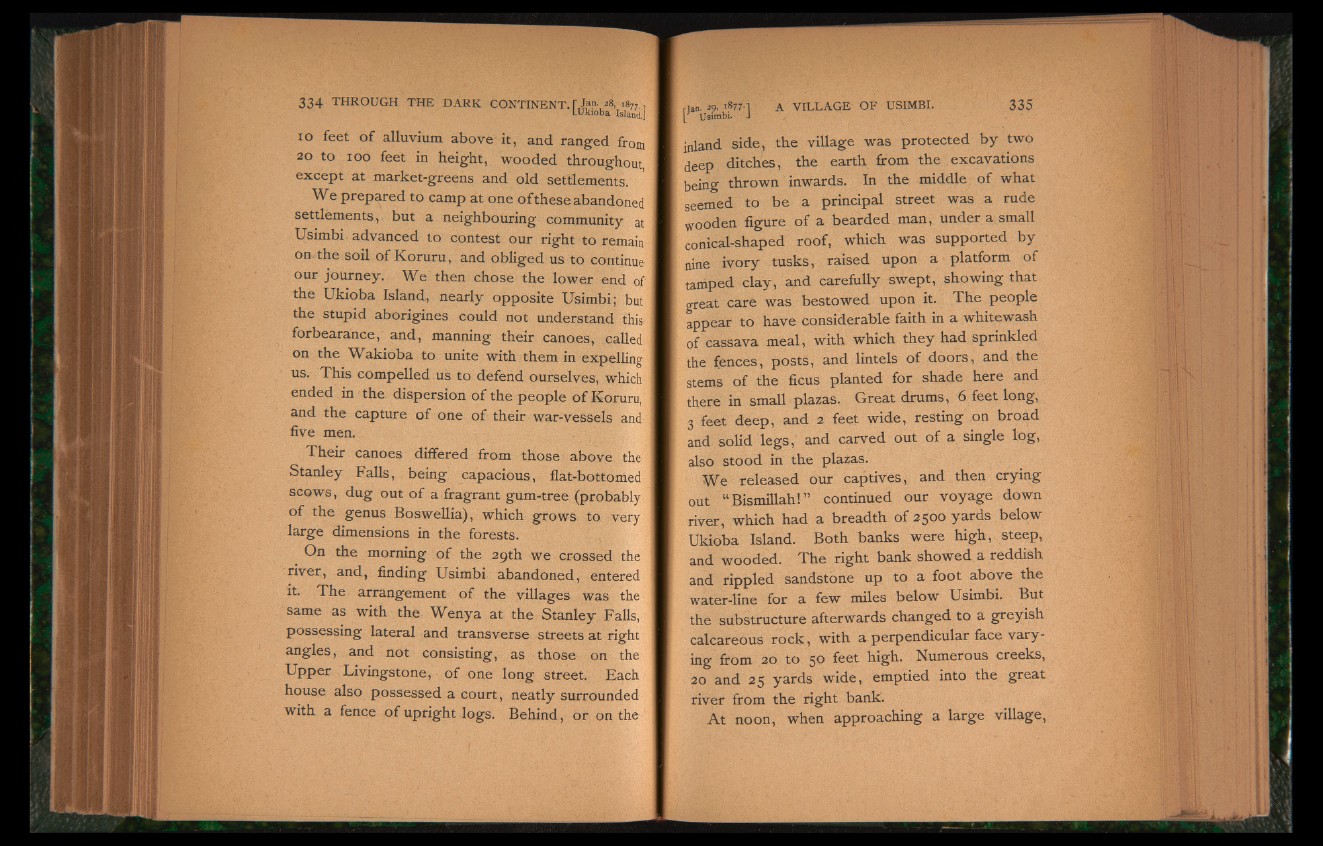
3 3 4 t h r o u g h t h e d a r k c o n t in e n t . rri,a?V8> P a l
LUkioba Island. J
10 feet of alluvium above it, and ranged fr0m
20 to ioo feet in height, wooded throughout,
except at market-greens and old settlements.
We prepared to camp at one of these abandoned
settlements, but a neighbouring community at
Usimbi advanced to contest our right to remain
on the soil of Koruru, and obliged us to continue
our journey. We then chose the lower end of
the Ukioba Island, nearly opposite Usimbi; but
the stupid aborigines could not understand this
forbearance, and, manning their canoes, called
on the Wakioba to unite with them in expelling
us. This compelled us to defend ourselves, which
ended in the dispersion of the people of Koruru,
and the capture of one of their war-vessels and
five men.
Their canoes differed from those above the
Stanley Falls, being capacious, flat-bottomed
scows, dug out of a fragrant gum-tree (probably
of the genus Boswellia), which grows to very
large dimensions in the forests.
On the morning of the 29th we crossed the
river, and, finding Usimbi abandoned, entered
it* The arrangement of the villages was the
same as with the Wenya at the Stanley Falls,
possessing lateral and transverse streets at right
angles, and not consisting, as those on the
Upper Livingstone, of one long street. Each
house also possessed a court, neatly surrounded
with a fence of upright logs. Behind, or on the 1
rian. 29. i?771 A VILLAGE OF USIMBI.
[ Usimbi.' J
inland side, the village was protected by two
deep ditches, the earth from the excavations
being thrown inwards. In the middle of what
seemed to be a principal street was a rude
wooden figure of a bearded man, under a small
conical-shaped roof, which was supported by
nine ivory tusks, raised upon a platform of
tamped clay, and carefully swept, showing that
great care was bestowed upon it. The people
appear to have considerable faith in a whitewash
of cassava meal, with which they had sprinkled
the fences, posts, and lintels of doors, and the
stems of the ficus planted for shade here and
there in small plazas. Great drums, 6 feet long,
3 feet deep, and 2 feet wide, resting on broad
and solid legs, and carved out of a single log,
also stood in the plazas.
We released our captives, and then crying
out “ Bismillah! ” continued our voyage down
river, which had a breadth of 2500 yards below
Ukioba Island. Both banks were high, steep,
and wooded. The right bank showed a reddish
and rippled sandstone up to a foot above the
water-line for a few miles below Usimbi. But
the substructure afterwards changed to a greyish
calcareous rock, with a perpendicular face varying
from 20 to 50 feet high. Numerous creeks,
20 and 25 yards wide, emptied into the great
river from the right bank'.
At noon, when approaching a large village,